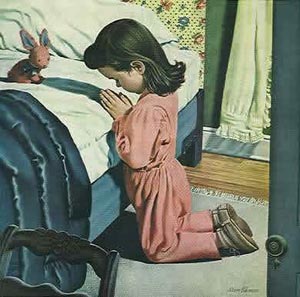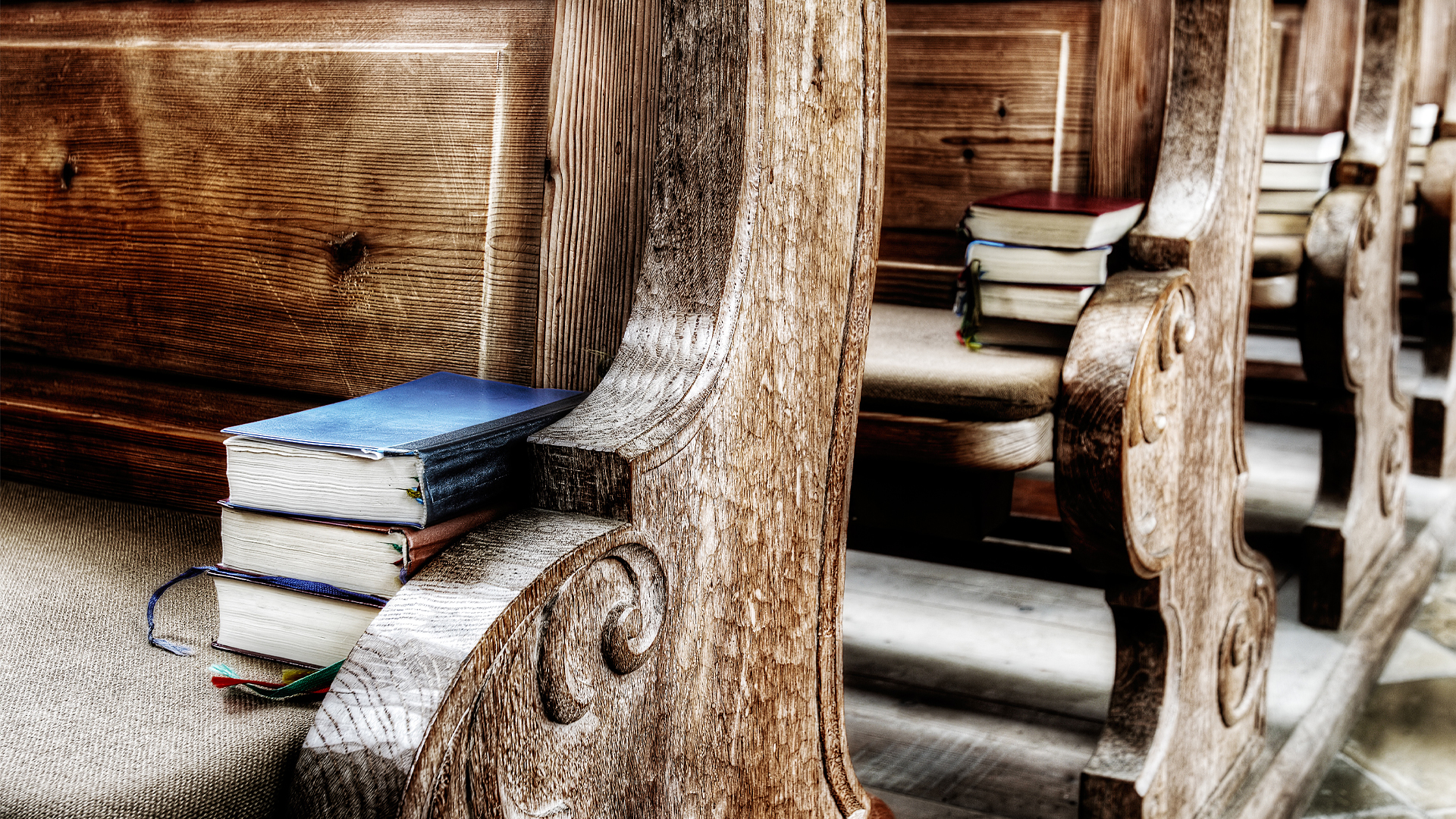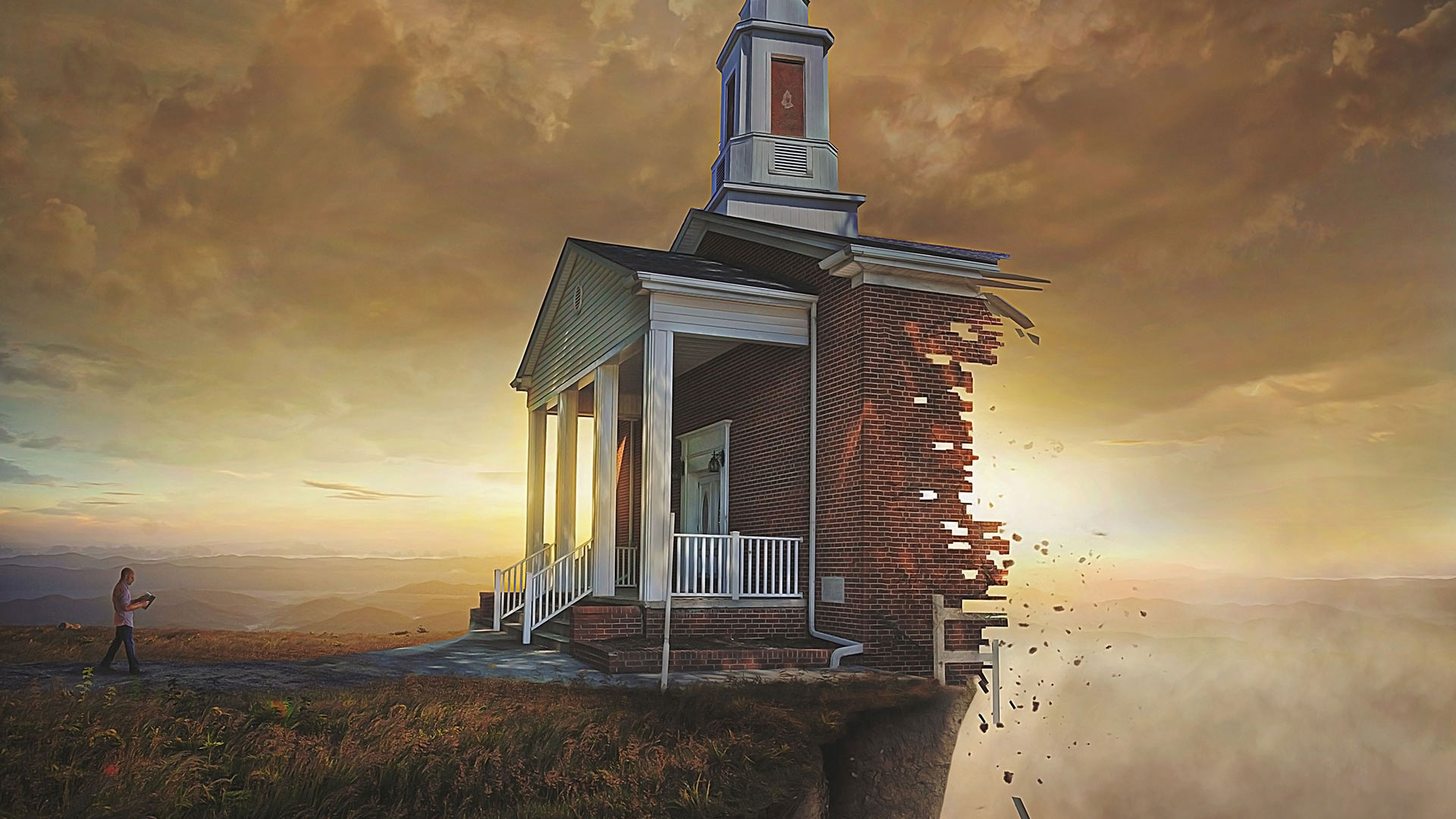Prayer, Revival and the Holy Spirit
Why don’t Christians pray?
By Dennis Pollock

Why don’t Christians pray? I’m not talking about praying at the dinner table or at church or on special formal occasions; we do enough of that. I’m talking about real prayer, prayer that stretches itself out toward God in intense desire and with great expectation. This kind of prayer is occasioned not by polite tradition but by a heart hunger that says to God, “I will not let you go until you bless me!”
Among professing Christians this kind of prayer has always been scarce. We talk about prayer, preach about prayer, read books about prayer — we just don’t often pray, at least not beyond formal necessity. The reason for our prayerlessness has sometimes been charged to laziness, but I believe there is a deeper reason.
I am convinced that one of the major killers of prayer among the people of God is a problem of unbelief. In many cases Christians just don’t believe that the simple act of making a request of their Father in heaven can really make a difference in their lives. If they had any clue that major blessings could be theirs just for the asking, they would be praying up a storm!
The Common Thread of Revival
When I was a young twenty-something year old pastor, I began a study of revival. It began with a study of some of the great revivalists and evangelists in church history, men such as John Wesley, George Whitefield, D. L. Moody, and Charles Finney. The revivals they experienced in their ministries were thrilling to me. I couldn’t help but feel that what God had done in the past He could certainly do today.
As my circle of reading widened, I began reading of other revivals that seemed to occur spontaneously, even without major evangelists associated with them.
I grew more and more intrigued. As I read I noticed a common thread that seemed to be woven throughout almost every account of revival. It seemed that somewhere lurking behind the scenes of every revival was the element of prayer. All the great evangelists were men who prayed, often with fasting, and often for hours upon end. Many times revivals seemed to break out in churches or places where a band of faithful prayer warriors had been seeking the face of God for months or years.
The more I read, the more convinced I became that I had found the secret of revival. It was a secret that any experienced minister could easily have shared with me, but it is always so special when you find it out for yourself. The secret I discovered was this: revival comes when God’s people pray! Let me give you a couple of examples.
The Revival of 1800
By the 1790’s, the United States had become a spiritual desert. Atheistic philosophies from the pens of Voltaire, Rousseau, and Thomas Paine had captured the minds of many of the nation’s intellectuals and leaders, and had been particularly embraced by the college students of that day. A poll was taken at Harvard and not one student would admit to being a Christian. A mock communion was held at Williams College, and anti-Christian plays were common events at Dartmouth. The churches were diminishing and were struggling for their very existence. Thomas Paine joyfully announced, “Christianity will be forgotten in thirty years.”
It was with heavy hearts that 23 New England ministers met together on a winter day in 1794 to discuss and consider what could be done to halt the flood of ungodliness that had ravaged the nation. The ministers came to agree that only a divine visitation could breathe life into the dying churches of America. The question was, what could they do to precipitate such a revival? They had only one answer — pray.
A call was sent out to all churches and all Christians in the nation to pray specifically for revival. The Presbyterians, Methodists, Baptists, Congregationalists, Moravians, and many other churches adopted the plan. Soon all America was saturated with the prayers of God’s people. In addition to special days of prayer, covenants of prayer were entered into by many believers to set aside times to jointly seek the face of God for the state of the church and the nation. Prayer became the main business of the church.
Then the breakthrough came. Revival broke out in Connecticut and soon swept through the country. In town after town the churches began to see converts being added to them at a rate few could have imagined possible. In one New England town, young people at a social gathering suddenly began to weep for no apparent reason. Conversions followed and revival swept the city.
James McGready, who pastored three little churches in Logan County, Kentucky, saw eleven thousand people come to a communion service/camp-meeting. While McGready preached, some of the sinners who were considered the hardest cases broke down and cried like babies. At Yale University great numbers of students rushed to join the Moral Society, and Christianity became as popular among the college students as Voltaire had been only a few years previously.
This revival, like a raging forest fire, swept from one end of our nation to the other. Although it is historically known as the revival of 1800, it lasted for many years and its effects were felt for a generation. Out of this revival came the resurrection of the church in America, a new emphasis on missions, the beginning of Sunday schools, and a great deal of stability in the previously lawless West. The church once again exerted considerable influence in the United States. God had surely answered the prayers of His people.
The Prayer Revival of 1857-59
By 1857, bitter division over the issue of slavery and a gradual weakening of the church had brought us to another place of desperate need for revival. In September of that year Jeremiah Lanphier, a former businessman turned lay missionary, decided that the businessmen of New York City would profit themselves and their city by a weekly prayer meeting. Distributing hundreds of handbills throughout the city, he invited businessmen to stop in over their lunch hour at the 80 year old Dutch Reformed Church on Fulton Street for “5, 10, or 20 minutes; or the whole hour, as your time permits.”
There was nothing special about the first meeting. Jeremiah waited alone for the first 30 minutes and finally six men showed up. But the next week there were 14, and then 23. It was decided to meet every day rather than weekly, and soon the entire church was filled to capacity with 3000 praying businessmen. Prayer meetings began to spring up in other parts of the city and within six months 10,000 were gathering daily over their lunch hour to pray.
This movement of prayer swept through New England and spread across the nation. Charles Finney, the great Presbyterian evangelist, summed up the prevailing attitude in saying, “The general impression seems to be, ‘We have had instruction until we are hardened; it is time for us to pray’.”
With so much prayer going forth from the lips of God’s people, it was inevitable that great numbers of conversions would soon follow. And follow they did! There were towns in which the people declared it was “almost impossible” to find persons who had not been converted. Throughout the land, taverns and gambling dens shut down for lack of patrons, and the churches filled up at a phenomenal rate. One man who traveled from Omaha to Boston found continuous prayer meetings the entire length of his journey in the cities which he passed through.
At the height of this revival it was estimated that no less than 50,000 souls were professing their faith in Christ each week throughout the nation. In one year, out of a population of thirty million, an estimated one million Americans were converted.
This revival was the most intense and rapidly spreading of all the awakenings our nation has seen. From the beginning it consisted of two key elements: much prayer and many conversions. It was not dependent upon any one man or denomination, but was the result of Christians of many backgrounds uniting to sow the seeds of prayer and reap a harvest of souls. Once again, God had proven that He is a rewarder of those who diligently seek Him.
Prayer, Rain, & Fruit
Of course, you can find this “secret” in the Bible without too much effort. Luke seemed to know it well. In Luke’s writings (Gospel of Luke, Book of Acts) we find a strong emphasis on prayer and on the Holy Spirit. Luke has more to say about the Holy Spirit and the filling of the Holy Spirit than all the other Biblical writers combined! Interestingly, he also gives us some insights into prayer that the other gospel writers do not.
It is Luke that tells us what Jesus was doing at His baptism by John: “Now when all the people were baptized, it came to pass, that Jesus also being baptized, and praying, the heaven was opened…” (Luke 3:21)
While the other gospels tell us of Jesus’ baptism, only Luke mentions the fact that He was praying as He came up out of the water. And what followed His baptism and prayer? We read further: “And the Holy Ghost descended in a bodily shape like a dove upon him, and a voice came from heaven, which said, ‘Thou art my beloved Son; in thee I am well pleased'” (Luke 3:22).
Luke tells us that at Jesus’ baptism several important things were happening. Jesus was praying, the heavens were opened, the Holy Spirit came upon Him, and God the Father endorsed Him. Could it be that there is a connection between prayer and the descent of the Holy Spirit?
Consider Luke’s other book, the book of Acts. On the Day of Pentecost the Holy Spirit descended upon 120 disciples of Jesus, and the early church was birthed in revival. Was prayer involved here? Any Bible student knows the answer to this. In Acts 1:14 we read: “These all continued with one accord in prayer and supplication…”
Again we find that prayer precedes the outpouring of the Holy Spirit. During that assembly of praying saints, God shows up, and we read: “Suddenly there came a sound from heaven, as of a rushing mighty wind… and they were all filled with the Holy Spirit…” (Acts 2:2,4).
Let us consider one more Biblical source. In James we read: “Elijah was a man with a nature like ours, and he prayed earnestly that it would not rain; and it did not rain on the land for three years and six months. And he prayed again, and the heaven gave rain, and the earth produced its fruit” (James 5:17,18).
In this verse we find the profound link between prayer, the Holy Spirit (as symbolized by rain) and the fruit that Jesus longs to produce in our lives and churches. Prayer brings the power of the Spirit, and the power of the Spirit brings forth the fruit. Both church history and Scripture amply testify to the reality of this.
The Last Days
When it comes to the last days, Christians seem to be divided pretty neatly into two camps. Many believe that the last days will be a time of great apostasy and spiritual coldness for the church. They predict perilous times and a “Laodicean” condition for the church prior to the return of Jesus. Others insist that God has promised to “pour out His Spirit” upon all flesh in the last days.
I believe the Scripture supports both views. Clearly there are ominous signs of societal degeneration and a slide into spiritual impotence by many of the professing Christians and churches. When 42% of Americans declare that Jesus Christ committed sins (including one-fourth of those who claim to be born again), something is dreadfully wrong.
On the other hand, evangelism goes on in record proportions. Nations such as South Korea and many of the African nations, which had almost no Christians at the turn of the century, are bursting at the seams with churches and evangelical believers today. In the previous century, any church with 1,000 members was considered enormous. Today we have many churches of 10,000 or more.
Yes the world is growing darker, but the Holy Spirit has not gone into retirement. The Bible gives no indication that the whole world will be converted to Christ before He comes, but it does tell us that the Gospel shall be proclaimed to all nations. If that gospel is to have a chance to succeed it must be accompanied by the prayers of believers. Let us join our voices in prayer for our churches, communities, and our nation, crying out to God for a great spiritual awakening as we await the glorious appearing of our great God and Savior, Jesus Christ.




